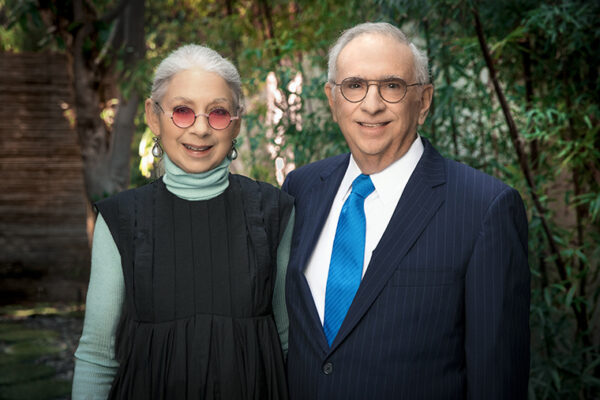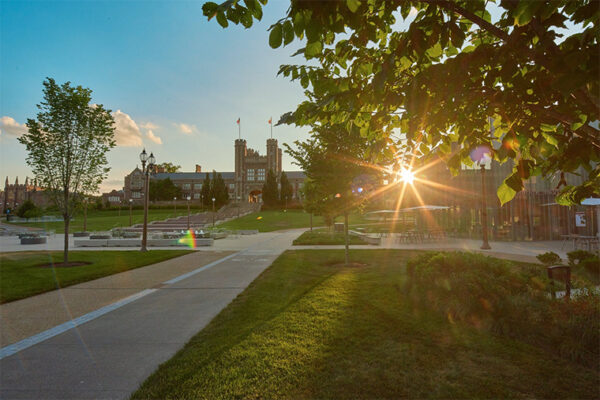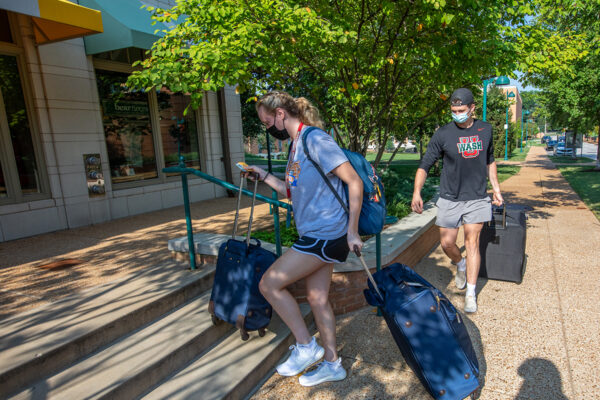Washington University in St. Louis will make an unprecedented $1 billion investment in financial aid for students, according to Chancellor Andrew D. Martin. This funding will allow the university to achieve its goal of adopting a need-blind undergraduate admissions policy, effective immediately.
The investment, which the university is calling Gateway to Success, is possible largely as a result of the extraordinary 65% return on the university’s Managed Endowment Pool for the 2020-21 fiscal year. It includes $800 million in endowed funding to support need-blind undergraduate admissions, which means the university will not consider an applicant’s financial situation when making admissions decisions while still meeting 100% of demonstrated financial need for admitted undergraduates. An additional $200 million will be designated for financial aid for graduate and professional students in the Brown School, the School of Law and the School of Medicine, as well as in business, engineering, art and architecture, and Arts & Sciences.
“This is a proud moment for us as an institution and I’m grateful to all who have contributed along the way.”
Chancellor Andrew D. Martin
“I could not be more pleased that we’re making good on our promise to make a Washington University education more accessible to all qualified students, regardless of their financial background,” Martin said. “Since I became chancellor nearly two years ago, becoming need-blind has been a top priority. Building on the momentum that began with our previous administration, we’re finally making it happen. This is a proud moment for us as an institution and I’m grateful to all who have contributed along the way, including generous donors who have provided scholarships and other financial support for our students.
“At the same time, however, our work is far from done. Admitting the best students from all socio-economic backgrounds is obviously the first step. Making sure they have the support and resources to succeed once they’re here is also critical. We must redouble our efforts to provide all of our students with the tools they need to thrive and participate fully in our world-class educational experience while on campus. We take this responsibility seriously. Continued philanthropic support from alumni, parents and friends will be critical to building on this investment in our students and ensuring access to an excellent WashU student experience for generations to come.”
Above all, this is an investment in our students and an affirmation of their talents and abilities.
Board of Trustees Chair Andrew E. Newman
“Above all, this is an investment in our students and an affirmation of their talents and abilities,” Board of Trustees Chair Andrew E. Newman said. “For any student to be admitted to Washington University, they have had to work incredibly hard. They have earned this opportunity by investing in themselves through their efforts in the classroom, in their communities and in their personal lives. We are now able to more fully make our own investment in their success as Washington University students. We are a strong university with a proud history and, especially now with an even more secure financial position, we are able to give more to our students to help them reach their highest potential, at Washington University and beyond. This is our greatest aspiration, and I’m delighted that the Gateway to Success investment will allow us to accomplish this.”
Gateway to Success is the newest addition to a suite of investments and programs that aim to increase student access and success at the university. Over many years, generous donors have provided ongoing support in establishing endowed and annual scholarships, which have formed the foundation on which this initiative rests. Other initiatives in support of student access include the WashU Pledge, a bold initiative to provide a free undergraduate education to incoming, full-time students from Missouri and southern Illinois who are Pell Grant-eligible or from families with annual incomes of $75,000 or less. The WashU Pledge covers the full cost of a Washington University education, including tuition, room, board and fees. The university also has taken additional steps to improve access in its admissions process. Examples of these include extending its test-optional policy for the 2021-22 admission cycle and eliminating “demonstrated interest” as a consideration in admissions decisions.
“We want to make WashU accessible to every qualified student.”
Ronné Patrick Turner, vice provost for admissions and financial aid
“We want to make WashU accessible to every qualified student,” said Ronné Patrick Turner, vice provost for admissions and financial aid. “We do this by removing barriers to admission and providing financial resources to make sure all students are able to attend, regardless of their ability to pay. We’ve long aimed to become a need-blind institution, and this is a huge step forward for us. At the same time, we know it will take an ongoing commitment for us to reach our goal of opening doors even wider for talented students to come to WashU. We look forward to making this happen in the years ahead.”
The need-blind undergraduate admissions policy will be in effect for the current admissions cycle and will impact students applying for the incoming Class of 2026 and beyond.


